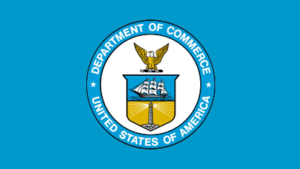
Diplomas and Credentials Available to Students with Disabilities and Their Impact on Opportunity Eligibility
Feb 19, 2014
White Plains, NY (Law Firm Newswire) February 19, 2013 – Several different diplomas and credentials are awarded to students with disabilities who complete high school in New York State. Students and their parents need to be aware of the differences between these diplomas and credentials and of the ways they can affect a student’s ability to pursue higher learning (and other) opportunities.
Regents Diploma:
In New York State, the standard high school diploma is called a Regents Diploma. This is the only diploma available to students without disabilities and is earned by most students with disabilities as well. Students must complete the required high school credits and pass five required Regents exams with a score of 65 or higher. A Regents Diploma with Advanced Designation is awarded to students who score 65 or higher on eight or nine Regents exams. Many competitive colleges and universities desire Advanced Designations from applicants.
Local Diploma:
To minimize the impact of high-stakes testing on students with disabilities, New York State requires districts to offer a local diploma to students with an individualized education program or section 504 Accommodation Plan under the so-called “Safety Net” provisions. Students may earn a local diploma if they score 55 or higher on the five required Regents exams. Even a grade of 45 on one or two Regents exams (other than English or math) can qualify a student for a local diploma if the student scores 65 or higher on other Regents exams under the so-called “compensatory option”. Students still need to earn all the typical credits required to graduate.
Although the Regents diploma is preferred by college admissions departments, community colleges and some other institutions accept students with local diplomas. The local diploma is also accepted by the armed forces, by trade unions and for all similar opportunities for which a high school diploma is required.
Even with the Safety Net options, some students will not be capable of earning a local diploma. In these cases, two other types of credentials are available for students with disabilities. These credentials are not high school diplomas, and they therefore do not create eligibility for traditional higher education degree programs. However, alternative programs, such as Think College, do offer opportunities for students who are not eligible for degree programs to participate in campus and academic life.
Career Development & Occupational Studies (CDOS) Commencement Credential:
Some students with disabilities may receive a Career Development and Occupational Studies (CDOS) Commencement Credential. This credential signifies substantial high-school-level career and technical education and was designed as a supplement to a Regents or local diploma. However, students with disabilities who complete its specialized requirements without achieving the required scores on Regents exams may earn a CDOS even without meeting requirements for a diploma.
Skills and Achievement Commencement Credential (SACC):
Students with severe disabilities who attend school for 12 years or more and who are assessed using the New York State Alternate Assessment (NYSSA) graduate with the Skills and Achievement Commencement (SACC) credential. The SACC indicates the student’s functional level of achievement academically and in terms of occupational and career development.
Many students with disabilities are able to perform well academically in high school and advance their educations at a college or university. The path a student takes depends on his or her individual circumstances and awareness of the available options.
—Marion Walsh, Esq. and Sandi Rosenbaum
Was this article of interest to you? If so, please LIKE our Facebook Page by clicking here.
Learn more at http://www.specialneedsnewyork.com/
New York Contact:
Maria M. Brill
Littman Krooks LLP
(914) 684-2100
mbrill@littmankrooks.com
New York City Office
655 Third Avenue, 20th Floor
New York, New York 10017
(212) 490-2020 Phone
Westchester Office
399 Knollwood Road
White Plains, New York 10603
(914) 684-2100 Phone
Dutchess Office
300 Westage Business Center Drive, Suite 400
Fishkill, NY 12524
(845) 896-1106 Phone
- More Mental Health Costs Now Covered by Medicare
Beginning this year, Medicare will cover more mental health care costs for older adults, addressing a long-standing issue. However, some problems with Medicare mental health coverage remain. For many years, there was an unjustified disparity between Medicare coverage for mental health care compared to coverage for other medical services. While Medicare paid 80 percent of […] - Utilizing Technology for High School and College Students – Smart Pens, Tablets, and Word Prediction Software: Part 2 of 2
Our guest bloggers this month are Casey Schmalacker, Academic Coach and Samantha Feinman, MS.Ed., TSSH., Program Director at New Frontiers in Learning. This is part two of a two-part series (click here to read part 1). Utilizing Technology for High School and College Students – Smart Pens, Tablets, and Word Prediction Software: The benefits of […] - Smart Pens, Tablets, and Word Prediction Software: Utilizing Technology for High School & College Students (part 1 of 2)
Our latest guest bloggers are Casey Schmalacker, Academic Coach and Samantha Feinman, MS.Ed., TSSH., Program Director at New Frontiers in Learning. This is part one of a two-part series. Utilizing Technology for High School and College Students: Part 1of 2 As we move through this digital age, students in high school and college are increasingly […] - The Differences between 504 Plans in Public Schools vs Colleges & Universities
It is important for students with disabilities who plan to attend college, and their parents, to understand how their legal rights related to their disability will change in a post-secondary education environment. In public elementary and secondary schools, students with disabilities may receive services under the Individuals with Disabilities Education Act (IDEA) or the Rehabilitation […] - Electronic Tracking Devices in the Wake of Avonte
By Marion Walsh, Esq., & Stacy Sadove, Esq. The death of Avonte Oquendo, a 14 year old boy with autism has shocked and saddened NYC and it surrounding area. Avonte disappeared from his school in October and his remains were discovered in the East River, after he fled school . What can be done to […]



